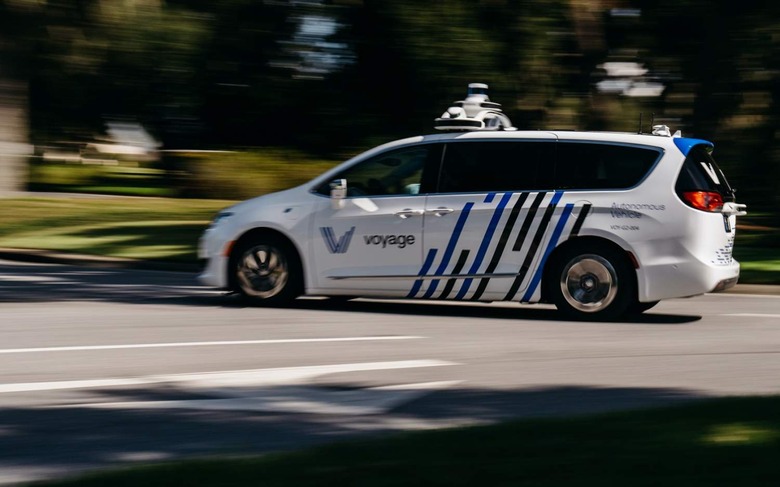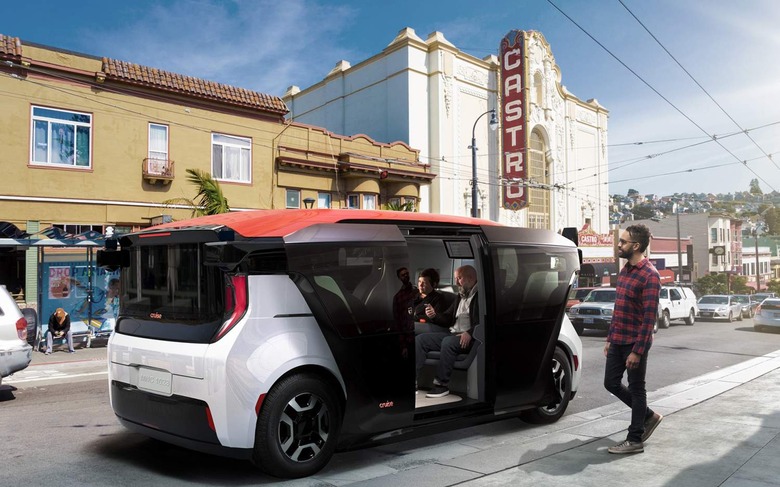Cruise could buy an autonomous vehicle rival with an unusual strategy
Cruise, the GM-backed autonomous vehicle company busy developing driverless ride-hailing pods, is reportedly in talks to acquire Voyage, another self-driving company. Founded in 2017, Voyage currently has autonomous vehicle pilots running in a number of retirement communities in the US, having focused on delivering geofenced transportation to riders who might ordinarily have been locked out of private car ownership.
Voyage's shared vehicle fleets, for example, can be used by those with partial or no vision, as well as those with medical conditions that prevent them from driving a traditional vehicle. At the same time, the community approach – currently underway in two locations, one in San Jose, CA, and the other in Florida – has made deployment more manageable, since the vehicles don't need to be able to operate outside of each retirement village.
Cruise, which is majority-owned by General Motors but which also counts Honda, Microsoft, and others among its backers, has been more aggressive in its goals. The company – which was granted permission to operate autonomous vehicles with no human backup in California last October – developed its own AV, the Origin, which was revealed in January 2020. A self-driving pod, with dual sliding doors and no traditional controls such as pedals or a steering wheel, the Origin will be built for Cruise on GM's Ultium EV platform.
Now, according to Bloomberg, there's talk of an acquisition. Discussions are underway between Cruise and Voyage, insiders say, described as "serious" though no deal is believed to be imminent.
Though Voyage may have opted for a relatively constrained operating environment, that's not to say its challenge has been necessarily easy. In Florida, retirement community The Village has 125,000 residents and 750 miles of road, spread across 40 square miles. The Villages in San Jose, meanwhile, has 4,000 residents and 15 miles of road.

"By 2060, more than 100 million Americans will be over 65," Voyage points out. "We must improve the transportation options available for senior citizens, and we believe that our self-driving car will bring about the necessary safety, cost, and convenience benefits that this growing demographic so badly needs."
Currently, Voyage uses retrofitted Chrysler Pacifica minivans that have been equipped with its autonomous driving suite; the vehicles also support teleoperation, where they can request human assistance in case of a situation the onboard intelligence is unable to deal with, and be driven remotely. The company counts JLR, Chevron, and others among its investors, and has raised around $52 million in funding overall. Cruise's latest finance round saw it raise $2 billion.
"We have nothing to announce but Cruise is always looking to add to our world-class engineering team as we work to solve the greatest engineering challenge of a generation," Ray Wert, Cruise spokesperson, said when asked for comment.

Nonetheless, the two firms would arguably be a good match. Launching autonomous vehicle services at scale has proved to be a tougher challenge than many predicted, with the combination of coexisting with human drivers, satisfying regulations that continue to evolve, and overcoming the lingering technical issues. A more structured deployment for Cruise might give it an opportunity to explore paid services without necessarily needing to deal with a huge operational area, much as Waymo One has been limited to a smaller section of Phoenix, AZ.
